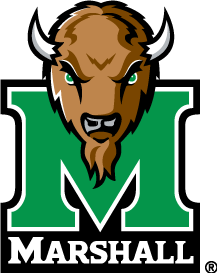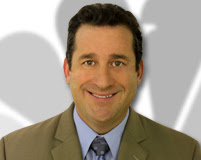
On April 3rd, 2018 I will visit Marshall University for a reading from my upcoming book “12 Rounds in Lo’s Gym: Boxing and Manhood in Appalachia.” Although I was raised in the rural coal mining town of Cowen, West Virginia, returning to Huntington always feels like returning home. The town of Huntington is key to the story. When my father officially opened the doors to “Lo’s Gym Boxing Club” I was 140 miles away, off being a first-generation college student at Marshall University. Just as was the case for the young pugilists who discovered better versions of themselves down at “Lo’s Gym,” my time at Marshall proved to be an equally transformative experience. None of us would ever be the same. The unique brand of homesickness experienced by rural Appalachian college students, the internal juxtaposition of a longing to return and struggle to transcend, is a prominent theme in my work. Communicating the ideological nuance of such a struggle is certainly no easy task. To help convey what makes Marshall University and the town of Huntington so unique, I invited a special guest to the blog.
He is the WSAZ Sports Director at NewsChannel 3 in Huntington, West Virginia. He is a two-time Emmy winner, a three-time recipient of the West Virginia Sportscaster of the Year Award. His father, Gene, a play-by-play announcer for the Marshall University Thundering Herd football and basketball teams, was one of the 75 individuals aboard the DC-9 (carrying the Marshall football team, coaches and other prominent Huntington figures) that crashed near the Tri-State Airport on the evening of November 14, 1970, the most horrific tragedy in U.S. sports history. His story is chronicled in the 2006 feature film “We Are Marshall.” Following in his father’s footsteps, he is proud son of Marshall University, an icon who is synonymous with the Thundering Herd. He has anchored, interviewed, and reported on some of the most famous and accomplished athletes in the history of American sports. For those from the mountain town of Huntington, West Virginia, he needs no introduction. He is the one and only – Keith Morehouse.
One of the biggest challenges I faced when writing the initial draft of “12 Rounds in Lo’s Gym” was trying to convey the powerful sense of community found at Marshall University in Huntington, West Virginia. The town and the school are connected in a way that I’ve never experienced elsewhere. Sports culture is, of course, a large part of it. You are uniquely qualified to help explain this phenomenon to outsiders. What makes the connection between Marshall University and Huntington so special? Give it your best shot!
KM: Marshall and Huntington are intertwined for a number of reasons. The school has grown up inside the city and is one of its primary employers. The influx of students helps the Huntington economy and gives it a sense of vibrancy that so many college towns have. I would also say there’s such a connection between Huntington and Marshall because of the Marshall plane crash tragedy of 1970. So many of the movers and shakers in Huntington perished that night along with so many connected to the football program and that creates a unique bond between the two.
Here in New York, most of my students know Marshall University via McG’s 2006 film “We Are Marshall.” You and your father, Gene Morehouse, show up as characters in the movie. Were you happy with how the film came out? Were you happy with how you and your father’s legacies were portrayed?
KM: Making “We are Marshall” was a long process and Warner Brothers put a tremendous amount of legwork in to make sure that Huntington and Marshall were ready for the story to be told. McG and his producer (Basil Iwanyk with whom I worked closely on a 10 year retrospective on the movie last year) were upfront about their reasons to make the movie and even provided many of us with the screenplay before shooting even began. When they asked if they could have permission to use my family’s connection to Marshall in the film, it was something we gave great thought to. Frankly my biggest concern was to make sure that the scope of the tragedy was portrayed and not just the back story of a few of the families who lost loved ones. I understood they were trying to bring the story full circle and that’s why they had actors play my father and me. I was extremely pleased that the movie makers really captured the emotion of the tragedy and its aftermath. Certainly I’m very close to it so it’s impossible for me to be objective but I’ve heard very few people who lost loved ones that night complain about the re-telling of the Marshall story. Most, I believe, were happy with the end product.
You have worked with some rather impressive clientele. Is there a particular athlete you’ve enjoyed working with the most?
KM: I have had the great fortune to be able to meet and interview such athletes as Muhammad Ali, Tiger Woods, Pete Rose, Lance Armstrong, Deion Sanders, Jack Nicklaus, Randy Moss and many others. Of athletes I’ve been very close to I would have to say that Chad Pennington and Byron Leftwich are two that I’ve become pretty close with. Both tremendous players, very accessible, and always gracious.
Boxing was always the primary sport in my family but I came up in the Randy Moss and Jason Williams era. Those guys were such an inspiration to folks from my hometown. Care to share a few memories from your time covering Randy and Jason?
KM: I’ve always had a good relationship with Randy Moss. In fact I just put together a piece for our Friday night sportscast on covering his Heisman Trophy finalist ceremony back in 1997. He has always been good to me and if all goes well he’ll be enshrined in the NFL Hall of Fame next year in Canton Ohio and we can cover that as well. Randy is the single most talented athlete I’ve ever been around, bar none. Jason is a fantastic talent as well. He was a bit more guarded so I didn’t know him as well as Randy but he did things with the basketball that no one else could do.
I graduated from Marshall University with Byron Leftwich so he will always be one of my sentimental favorites. Your opinion is probably more subjective than mine. Give me your top 5 Marshall football players of all time.
KM: In no particular order Randy Moss, Chad Pennington, Byron Leftwich, Troy Brown, Gunner Gatski.
For years, the West Virginia Golden Glove Tournament was held in Huntington. Did you ever cover the event? Cover boxing in the region?
KM: Yes in fact my wife’s father, Ray Hagley (he and his wife died in the Marshall plane crash) was a former open division champion in the Golden Gloves. I’ve always loved boxing. My dad is from Newark, NJ and grew up in the golden age of boxing and saw many of Joe Louis’ fights in person. So he passed on his love of the sport to my brothers and me. I used to go to the Golden Gloves at the old Memorial Field House and the atmosphere in there I still remember to this day.
I didn’t know that you are a boxing fan. Tell us a little bit about that side of your sports personality .
KM: Loved the old days when they had the great fights on Wide World of Sports—I was a Joe Frazier fan and my brother liked Muhammad Ali and so we would go back and forth during their great battles. I also loved the middle and welter-weight division battles when Ray Leonard, Roberto Duran, Marvin Hagler, and Thomas Hearns were battling. The heavyweight division was great when Mike Tyson was champ too. Still enjoy the fights and get together with friends and family to watch pay per view all the time.
You are a two-time Emmy winner, a three-time WV Sportscaster of the Year recipient. I would imagine our aspiring journalism students here at Siena College would love to hear your advice. Can you identify a few keys to success for aspiring sports journalists?
KM: Yes I would just urge them not to get into the business just because they think it might be neat to be on television. You get over that pretty quickly. The most important and still-fulfilling part of this business for me is to tell other people’s stories. There are so many great stories to tell and when you can do that and you’re satisfied that you did it the right way, well that’sl the most satisfying part of my job.
Thank you, Keith. As a son of Marshall, it has been an absolute pleasure conversing with you!
KM: You’re very welcome Todd—glad you get to come back to Marshall University this spring!

Follow Keith Morehouse on Twitter: @KeithMorehouse
To learn more about the upcoming “Lo’s Gym Book Tour,” click HERE
To read more “Lo’s Gym” interviews, click HERE
“12 Rounds in Lo’s Gym” is now available for pre-order. Click HERE
You are a Great Inpiration and a Amazing Man Keith & Your Dad Is So Proud of You. I Hope to Get to See You at sometime soon.